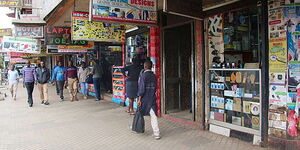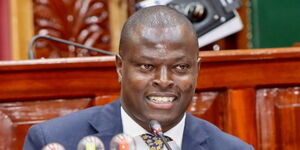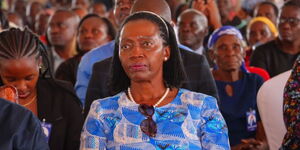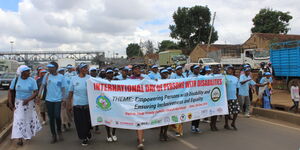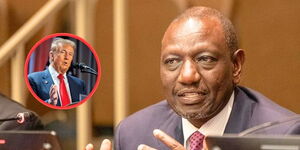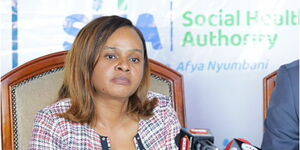There has been intense debate on the relevance of Women Representatives in Kenya since most people cannot seem to fully understand what their role is in Parliament.
According to some Kenyans, the Women Representatives themselves don't seem to understand their roles.
Others have even gone as far as labeling them ‘flower’ girls, slay queens and a ‘wastage’ of taxpayers’ money.
Nonetheless, Women Representatives in Kenya have a huge role to play in the politics and governance of this country.
In this article, we’ ll review their roles and functions as well as list all the Women Reps in the 47 counties in Kenya.
Who are Women Representatives?
The position of Women Representatives is provided for in Article 97 of the Constitution of Kenya.
In describing the composition of the National Assembly, the constitution stipulates that the house consists of 47 women representatives, one from each county.
The Women Representative position is an affirmative seat that is meant to increase the representation of women in parliament in an attempt to bridge the wide representation gap that existed before the new constitution took effect in 2010.
Functions of Women Representatives in Kenya
1. Representation of the people
Women representatives, as the title suggests play the role of representing women in the national assembly.
They advocate for the interests of women in by ensuring that the needs of women and girls as a special interest group are addressed as the National Assembly transacts its business.
2. Approval of budget and plans
Women representatives are responsible for approving budgets and plans at the national level.
In participating in debates regarding budgets and plans, women representatives need to ensure that documents approved by the house address the needs of women and girls.
Women representatives are allocated a fund known as the Affirmative Action Social Development Fund which is similar to the Constituency Development Fund (CDF).
This fund is in line with female gender empowerment and is supposed to assist Women Representatives to implement projects in their counties.
3. Exercising oversight
As part of the National Assembly, women representatives exercise oversight over the executive, the national government arm responsible for implementing national laws and plans.
They are expected to scrutinize financial, administration and management by public resources at the national level and ensure there is accountability and transparency in national expenditure and service delivery.
They are also expected to review the conduct of state and public officers at the national government.
4. Legislation
Women representatives participate in legislative debates in the national assembly and add the voice of women to the debates.
The National assembly is responsible for debating and passing bills which upon assent by the President, become county laws.
These laws may emanate from the executive, the members themselves or from private members. The law requires that citizens be involved in the process of making national laws.
List of all Women Representatives in Kenya
1. Baringo County – Gladwell Jesire Cheruiyot – KANU
2. Bomet County – Joyce Korir Chepkoech – Jubilee
3. Bungoma County: Catherine Nanjala Wambilianga – FORD KENYA
4. Busia County: Florence Mutua – ODM
5. Elgeyo Marakwet County: Jane Jepkorir Kiptoo Chebaibai – Jubilee
6. Embu County: Jane Wanjuki Njiru – Jubilee
7. Garissa County: Anab Mohamed Gure – Jubilee
8. Homa Bay County – Gladys Wanga – ODM
9. Isiolo County: Rehema Dida Jaldesa – Jubilee
10. Kajiado County: Janet Marania Teyiaa – Jubilee
11. Kakamega County: Elsie Busihile Muhanda – ODM
12. Kericho County: Florence Chepngetich Koskey – Jubilee
13. Kiambu County: Gathoni Wamuchomba – Jubilee
14. Kilifi County: Gertrude Mbeyu Mwanyanje – ODM
15. Kirinyaga County: Purity Wangui Ngirici – Jubilee
16. Kisii County: Janet Ongera – ODM
17. Kisumu County: Rozaah Akinyi Buyu – ODM
18. Kitui County: Irene Muthoni Kasalu – WDM-K
19. Kwale County: Zuleikha Ju Ma Hassan – ODM
20. Laikipia County: Catherine Wanjiku Waruguru – Jubilee
21. Lamu County: Ruweida Mohamed Obo – Jubilee
22. Machakos County: Joyce Kamene – WDM-K
23. Makueni County: Rose Mumo – WDM-K
24. Mandera County: Amina Gedow Hassan – EFP
25. Marsabit County: Safia Sheikh Adan – Jubilee
26. Meru County: Kawira Mwangaza – Independent
27. Migori County – Pamela Awuor Ochieng – ODM
28. Mombasa County: Asha Hussein Mohamed – ODM
29. Muranga County – Sabina Wanjiru Chege – Jubilee
30. Nairobi County: Esther Passaris – ODM
31. Nakuru County: Chelule Chepkorir Liza – Jubilee
32. Nandi County: Tecla Chebet Tum – Jubilee
33. Narok County: Roselinda Tuya – Jubilee
34. Nyamira County: Jerusha Mongina Momanyi – Jubilee
35. Nyandarua County: Faith Wairimu Gitau – Jubilee
36. Nyeri County: Rahab Mukami Wachira – Jubilee
37. Samburu County: Maison Leshoomo – KANU
38. Siaya County: Ombaka Christine Oduor – ODM
39. Taita Taveta County: Lydia Haika Mnene Mizighi – Jubilee
40. Tana River County: Rehema Hassan – MCCP
41. Tharaka Nithi County: Beatrice Nkatha Nyaga – Jubilee
42. Trans Nzoia County: Janet Nangabo Wanyama – Jubilee
43. Turkana County: Joyce Akai Emanikor – Jubilee
44. Uasin Gishu County: Gladys Boss Shollei – Jubilee
45. Vihiga County: Beatrice Kahai Adagala – ANC
46. Wajir County: Fatuma Gedi Ali – PDR
47. West Pokot County: Lilian Cheptoo Tomitom – Jubilee
What is Kenya Women Parliamentary Association (KEWOPA)?
The Kenya Women Parliamentary Association (KEWOPA) is a membership association of all women parliamentarians drawn from across all political parties both elected and nominated in the Senate and National Assembly.
Currently there are eighty six (86) Members drawn from the National Assembly, and the Senate as follows:
16 Members elected from single Member constituencies
47 County Women Members of Parliament
5 Nominated Members of the National Assembly from political parties;
18 nominated senators including 2 representatives of the youth and persons with disabilities respectively.
KEWOPA was established in 2001 by eight (8) women parliamentarians with its primary objective being to address the issues of women parliamentarians, building their capacities as legislators and representatives of their constituents and lobbyists of women-centred policies and laws.
As a result, KEWOPA increased the visibility and effectiveness of women leaders in influencing key political parties to support the entry of more women into parliament through direct elections and nomination to special seats reserved for parties.
As a result the number of women increased from 8 to 18 and KEWOPA became officially registered organization in 2004.
Functions of KEWOPA
Presently, its overall goal is to work towards ensuring that women and men are equitably represented in parliament and decision making in public and private spheres to promote sustainable development.
Its core mandate is to promote the advancement of parliamentary democracy by enhancing knowledge and understanding of democratic governance and facilitate the networking of women parliamentarians for the socio-economic development of Kenya.
KEWOPA works under the leadership of an Executive Committee headed by a chairperson and supported by a secretariat that provides technical and administrative support in realizing its vision.
KEWOPA’s scope of work is based on four strategic areas that are:
1. Legislative and oversight function
It seeks to enhance the individual and collective legislation function of MP’s, advance watch dog building skills, develop leadership skills to increase their participation in parliamentary committees and develop diplomatic and interactive capacities of the members.
2. Representative function
It seeks to boost the individual and collective representative functions of MP’s with regard to constituency development and management and continuous engagement with voters on policy and community issues.
3. Political party function
It seeks to advance the members participation in political party activities including participating actively on party platforms and party policy development.
4. Institutional strengthening
It seeks to enhance its institutional capacity of the secretariat to promote and facilitate the members in their legislative, political and representative functions.
KEWOPA contacts
The Kenya Women Parliamentary Association
P. O. Box 41842 00100 Nairobi, Kenya.
The Parliament Office
Harambee Sacco Plaza, 8th Floor Room 6
Tel No:254719561738; 254 20 2848397 or 254 20 2221291 Ext. 39397
Email: info@kewopa.org

